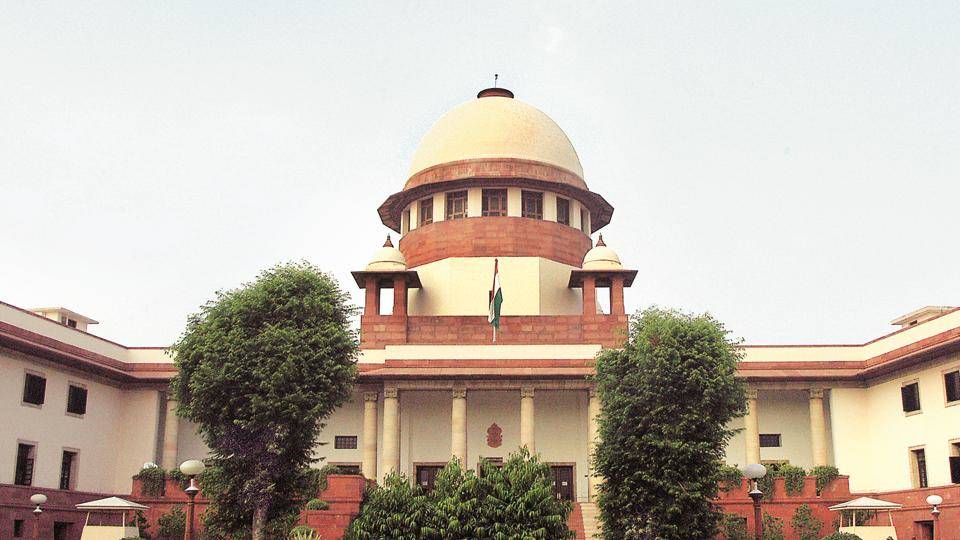Minority groups protest ruling
April 3, 2018 | Expert Insights

India saw nation-wide protests on Monday after the Supreme Court stated that the Scheduled Caste and Scheduled Tribe (Prevention of Atrocities) Act, 1989 would be changed to prevent automatic arrests. Disadvantaged groups argued that this would dilute the provisions of the act and increase violence against minorities.
Background
The Scheduled Caste and Scheduled Tribe (Prevention of Atrocities) Act, 1989, was enacted on 11th September 1989.The act’s Statement of Objects and Reasons noted that it was intended to address the country’s long history of caste-based violence and discrimination.
The Statement read, “Despite various measures to improve the socio-economic conditions of the Scheduled Castes and the Scheduled Tribes, they remain vulnerable… They are denied a number of civil rights. They are subjected to various offences, indignities, humiliations, and harassment.” As a result, the Act found previous laws such as the Protection of Civil Rights act 1955 and the Indian Penal Code to be inadequate to deter crimes against Scheduled Castes and Scheduled Tribes (SC/ST).
It stated the need for “special legislation” to check and deter these crimes. The Act’s purpose is therefore to prevent atrocities against the SC/ST community, provide special courts to try offences, and provide compensation for victims.
The act orders punishment and imprisonment for acts against SC/ST, which are “derogatory to human dignity”. Additionally, the act notes that any public servant belonging to a dominant group who “neglects his duties required to be performed by him under this Act and the rules made thereunder” would also be held accountable.
Special courts, “upon a complaint or a police report that a person is likely to commit an offence,” can order the person in question to “remove himself beyond the limits” of the area of offence. The act also allows high ranking officials to take preventive action against those likely to commit an offence under the act. It limits opportunities for bail as well.
In recent years, there has been an increase of violence against deprived castes. According to statistics, over 40,000 crimes against lower castes were reported in 2016. Only last week, it was reported that a young Dalit farmer in Gujarat had been beaten to death by upper-caste men for owning and riding a horse, an act which they considered to be an upper-caste privilege.
Analysis
On March 20th, the Supreme Court noted a flaw in the SC/ST (Prevention of Atrocities) Act. The apex court stated that the act was being “rampantly misused” to “blackmail” or “wreak personal vengeance” on public and private employees. The court stated that 15-16% of cases filed under the act in 2015 were false. It therefore ordered law enforcement to stop automatic arrests and ensure inquiry before persecution. For private citizens, the police would have to gain approval for arrest from superior officers; for public servants, arrests would be allowed after permission from the official’s higher authority.
“The Act cannot be converted into a charter for exploitation or oppression by any unscrupulous person or by the police for extraneous reasons against other citizens. Any harassment of an innocent citizen, irrespective of caste or religion, is against the guarantee of the Constitution. This court must enforce such a guarantee. Law should not result in caste hatred,” the Supreme Court added.
The Union government has filed a petition against the judgement, claiming that it would violate Article 21 (Right to Life and Personal liberty) of the Indian constitution for SC/ST. Union Law Minister Ravi Shankar Prasad stated, “We have filed a comprehensive review petition which will be presented before the court by the senior lawyers of the government.”
On Monday, Dalit groups called for a nationwide bandh to protest the judgements. These groups argued that the Supreme Court’s ruling would dilute the lower castes’ key means of protection against atrocities. They believe that it would give leeway for officials to ignore caste-based violence, which will lead to more crimes against these groups. "The SC/ST Act ensured the protection of Dalits in India by making any discrimination against our community a punishable offence. With this new Supreme Court order, these legal obligations have ended. We're all sad and shocked," minority leader KP Choudhary told BBC.
The protests turned violent in numerous parts of the country, and eight people were killed in skirmishes on Monday. As a result of the “Bharat Bandh”, public services were shut down in some states.
Assessment
Our assessment is that this Supreme Court ruling could have come at a more opportune time. We feel that increased violence against Dalits in recent times has further alienated them from the mainstream. While it is important to have a reliable system to prove charges that are brought by the lesser privileged community, the state should ensure that they are treated with respect and dignity. The basic credo of Indian democracy is our ability to ensure that every citizen has a right to live with equitable opportunities.








Comments